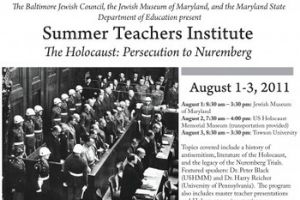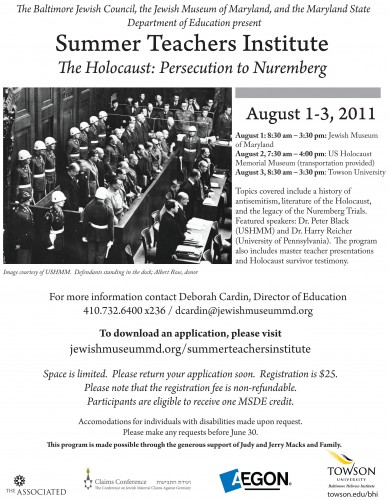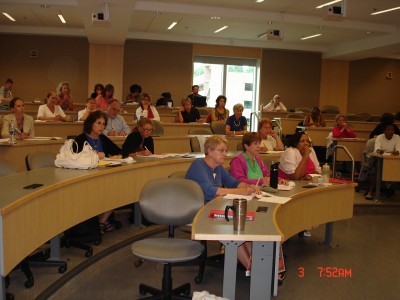The Abiding Impact of the NurembergTrials

 A blog post by Education Director Deborah Cardin.
A blog post by Education Director Deborah Cardin.
On August 8, 1945, the Allied victors in World War II entered into an agreement to establish the Nuremberg Trials in an attempt to carry out justice against perpetuators of the Holocaust. 61 years later, the impact of the Nuremberg Trials can be seen in today’s headlines about trials against notorious genocide masterminds. Although genocide was not yet a classified charge (indeed it was not until later that the term was accepted as a criminal charge in international law thanks to the extraordinary efforts of Rafael Lempkin who coined the term), the Nuremberg Trails marked the first time that an international tribune was convened to try “crimes against humanity.” (For more detailed information about the Nuremberg Trials, check out the US Holocaust Memorial Museum’s website: http:///www.ushmm.org/museum/exhibit/focus/warcrimetrials/)
Participants at the Jewish Museum of Maryland and Baltimore Jewish Council’s recent Summer Teachers Institute, The Holocaust: Persecution to Nuremberg, recently spent a full day exploring the impact and significance of these trials.
According to University of Pennsylvania law professor, Harry Reicher, an expert on the topic of human rights law and our speaker for the morning, the Nuremberg Trials were significant for many reasons. He cited the efforts of chief prosecutor Robert Jackson who advocated on behalf ensuring that defendants would receive a fair trial as evidence of the high moral plane upon which the trials were based. Furthermore, the Nuremberg Trials also set a precedent by placing 22 defendants (including leading figures in the Nazi establishment who were still alive and in captivity) on trial as individuals as opposed to specific governments.
Through documentary film clips – as well as through the use of clips from the award-winning dramatization Judgement at Nuremberg (check out http:///en.wikipedia.org/wiki/Judgment_at_Nuremberg to learn more about this film) – Professor Reicher kept attendees riveted as he discussed important legal concepts that served as the trial’s basis.
Among these was the importance of collecting enormous amounts of documentary evidence, and prosecutors gathered extensive documentation for evidence. This proved to be one of their most enduring legacies as prosecutors foresaw the need to combat future efforts at Holocaust denial.
In the afternoon teachers had additional opportunities to learn strategies for teaching about the Nuremberg Trials in their classroom. At Towson University, Dr. Nicole Dombrowski gave a presentation where she shared information about an archival collection housed at TowsonUniversitythat includes extensive primary sources from the Trials gathered by Paul Gantt, a member of the US armed forces who was worked with Nuremberg prosecutors. (To access the Paul Gnatt Collection and to make use of the lesson plans developed by Dr. Dombrowski and her students, check out http:///wwwnew.towson.edu/nurembergpapers/)
Teacher response to this day of our Institute was overwhelming as evidenced by the following comments on program surveys:
- Thank you for the dedicating the last day to the Nuremberg Trials. It was great to examine one facet in depth at the end.
- All of the information on the Nuremberg Trials was great. It was a lot of information but it definitely needs to be seen, heard, and remembered
- Thank you, this was wonderful. This is my second year, and I think what you are doing is fabulous. I promised last year to incorporate what I learned into my classes, and I have. I will keep working…
- Liked the theme of the day. Excellent speakers. Knowledgeable speakers.
- A wonderful experience for me!
- I am learning so much…so much information to explain in such a short time. Again, I wish we had more time. I have a much clearer understanding of how these trials evolved and their importance in the international courts even today.
The establishment of a permanent international tribune with an independent prosecutor is a legacy that has endured to the present day. Furthermore, the charge of “crimes against humanity” has been used as justification for trials in more contemporary instances of genocide in Rwanda and Bosnia.



